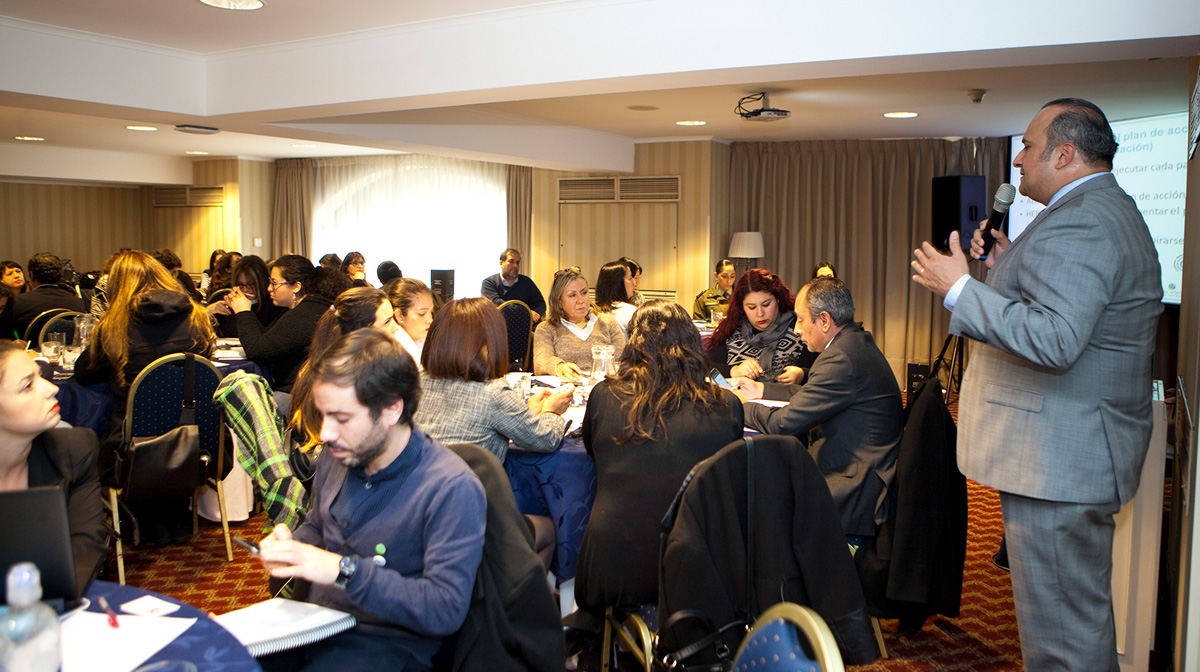It Takes a Collaborating Village to Identify, Investigate and Prosecute Gender-Based Violence in Santiago, Chile

Photo above: Vicente Reyes (San Francisco) addresses participants at the Vital Voices Justice Institute on Gender-Based Violence
New Perimeter partners with global women’s rights organization Vital Voices in helping to deliver workshops around the world called Justice Institutes, which are focused on addressing and curtailing gender-based violence. I had the honor of participating in the first such Justice Institute in Chile, which included over 60 local judges, prosecutors, social workers, psychologists and law enforcement participants. The goal was to spark dialogue and share information about best practices in combating gender-based violence. Before heading to Santiago, I read Country Assessment reports, prepared in part by DLA Piper colleagues, in order to better understand the challenges the Chilean society faces with respect to a problem that has no borders, but rather affects societies throughout the world.
The training program that I participated in included a local family law judge, a prosecutor, a psychologist, a social worker and a high ranking official of the police department who handles family abuse cases. Experts from Vital Voices and the NGO Aequitas, as well as representatives of the sponsoring nonprofit Avon Foundation, did an excellent job in coordinating all of the training sessions that would take place throughout the next three days. I immediately noticed, however, that there were various theories amongst the individuals from the different professions regarding existing Chilean laws and how they are meant to help victims. It was then that I realized that the hardest part, yet the main goal of the Institute, would be training professionals who dedicate their lives to protect victims of gender based violence from across various disciplines to collaborate in order to achieve the common goal of keeping gender-based violence victims safe while holding offenders accountable for their actions.
I truly sensed that all participants were eager not only to share their personal experiences, but also to learn from the experiences of others. Time and again I heard participants express how happy they were to be able to discuss the various cases that were part of the training with professionals from other sectors. I had the opportunity to discuss my experience in helping victims of gender-based violence with respect to immigration law matters and appreciated the participants’ genuine interest in learning about the different programs we have in the United States.
I left Santiago very optimistic that the collaboration I witnessed between the members of the different professions who have the same goal in mind was only the beginning of something much bigger that will benefit Chilean society in the future.
Working to Prevent Gender-Based Violence with Vital Voices
